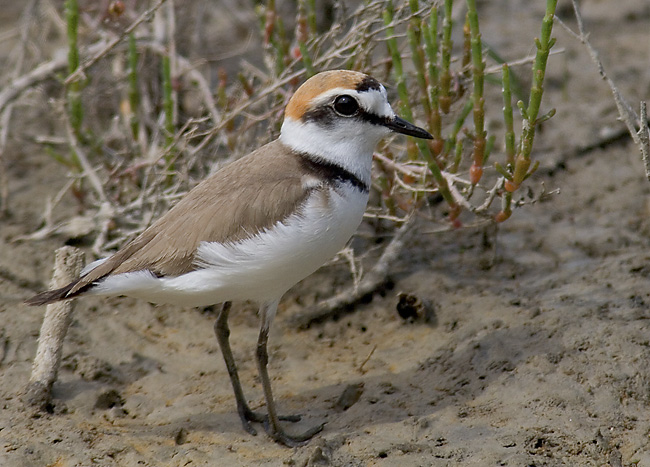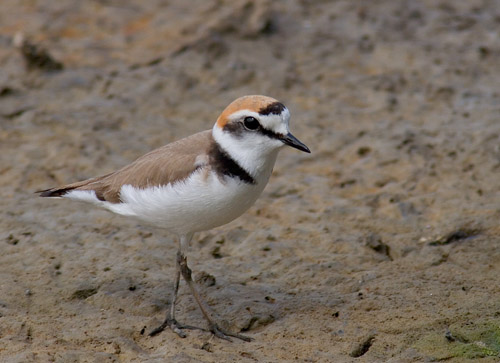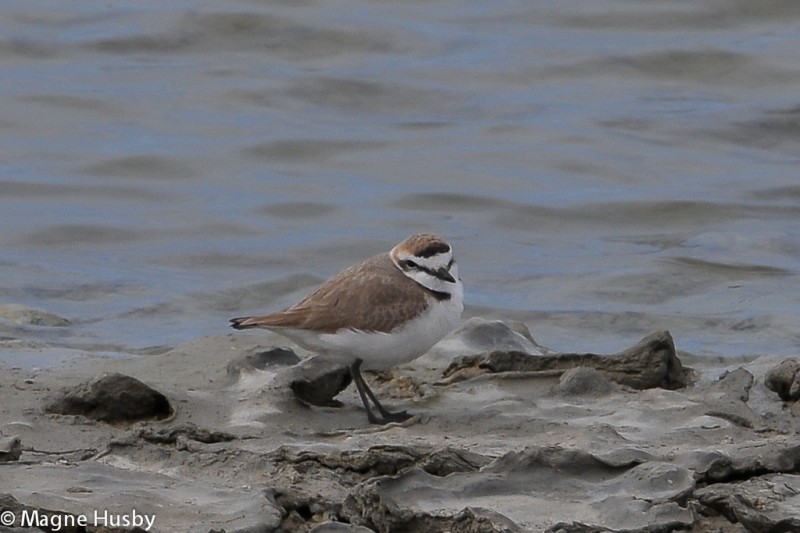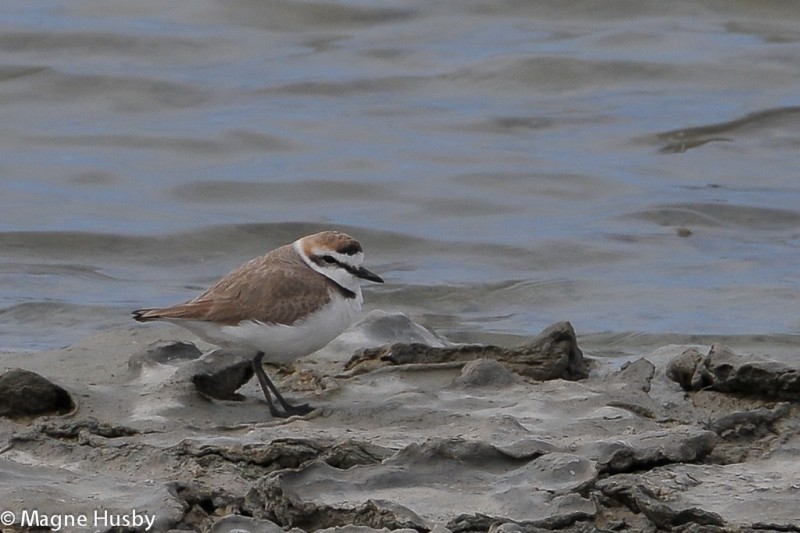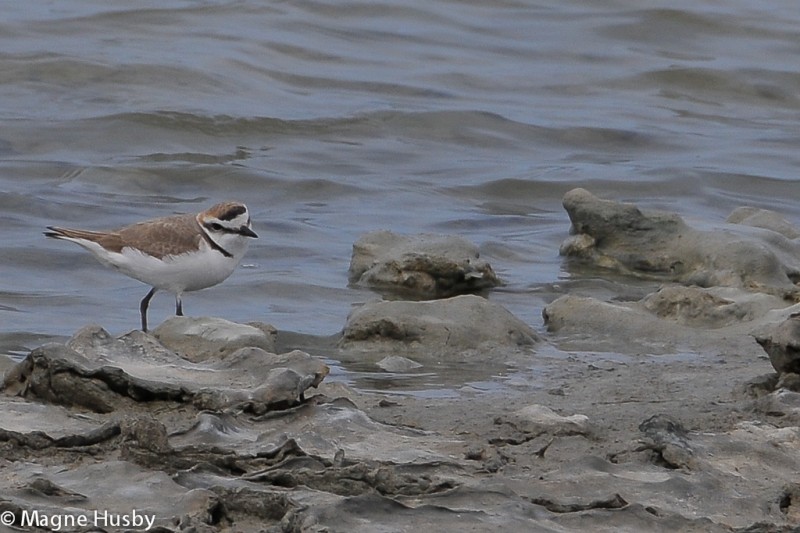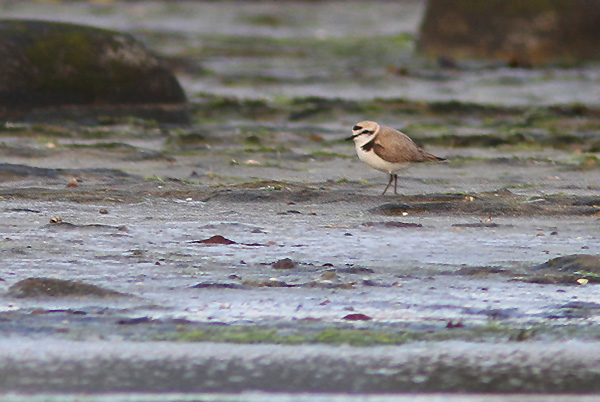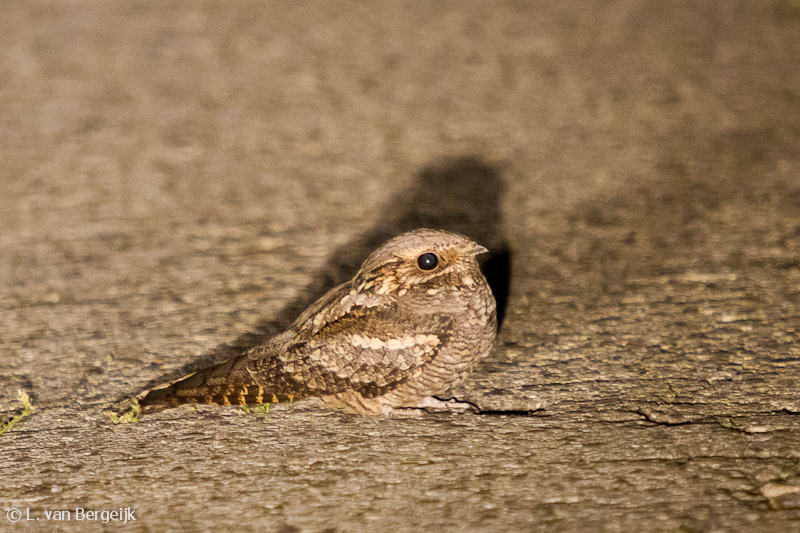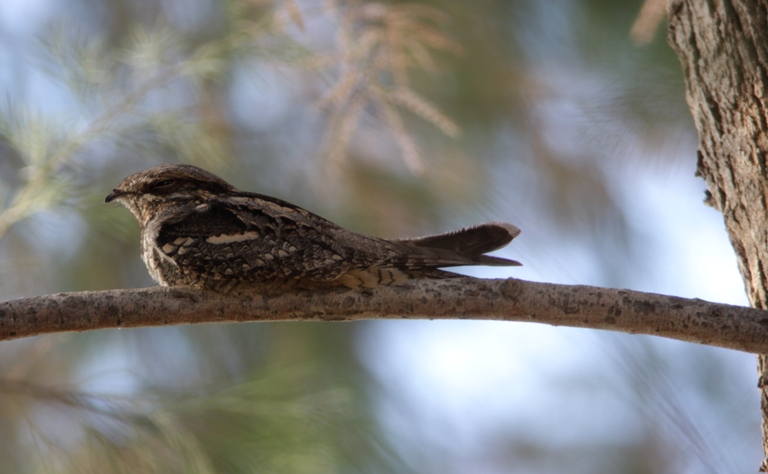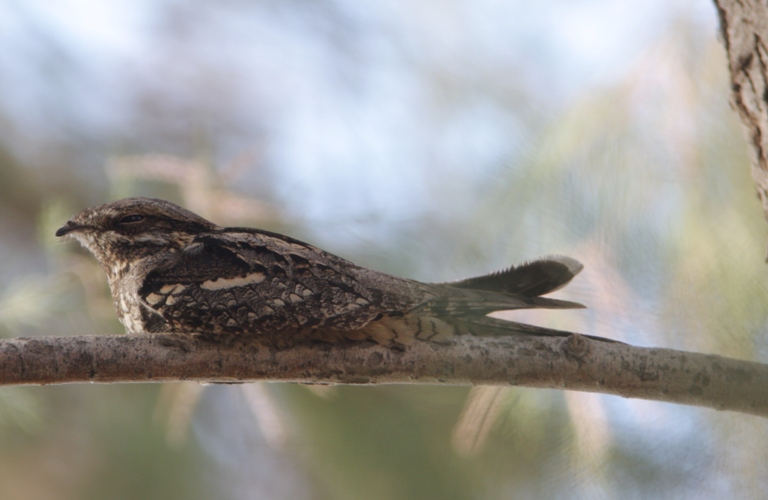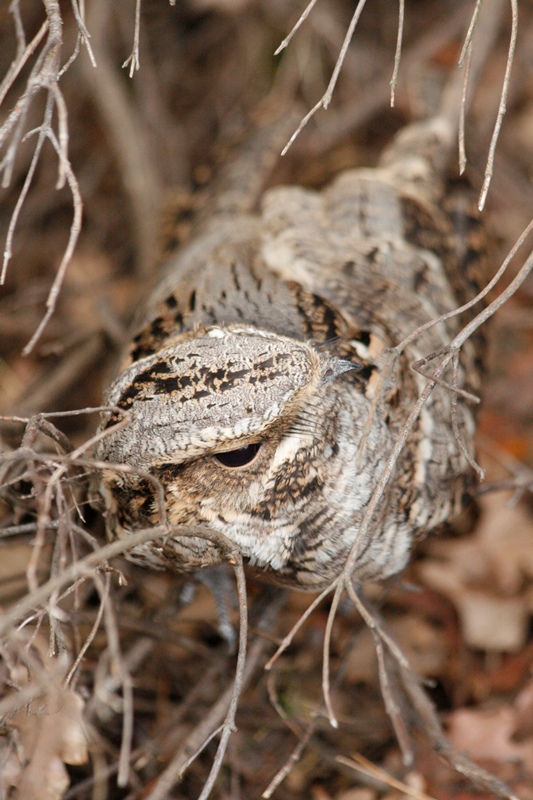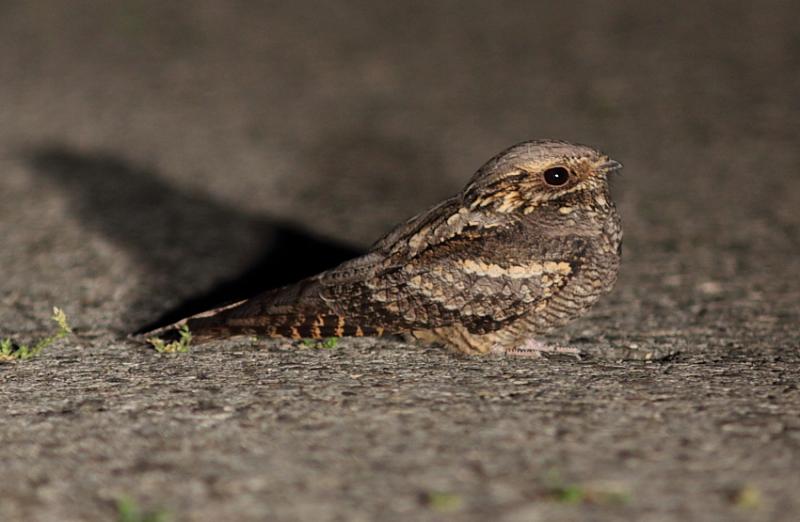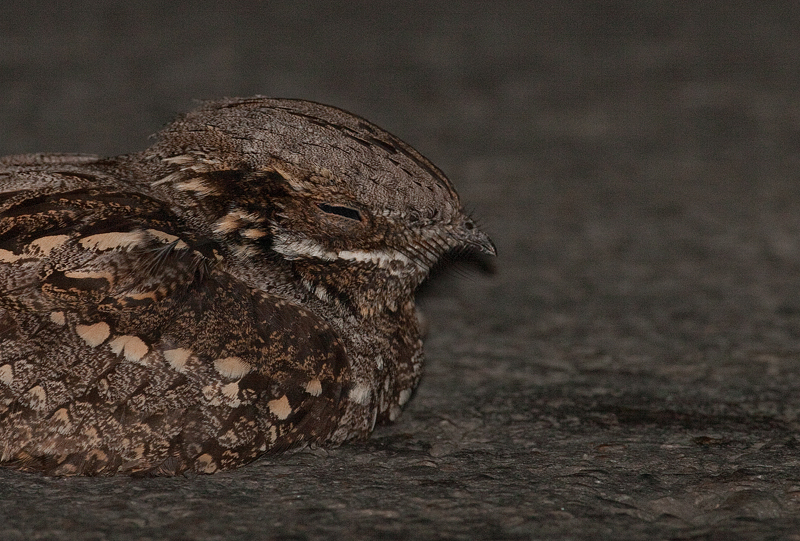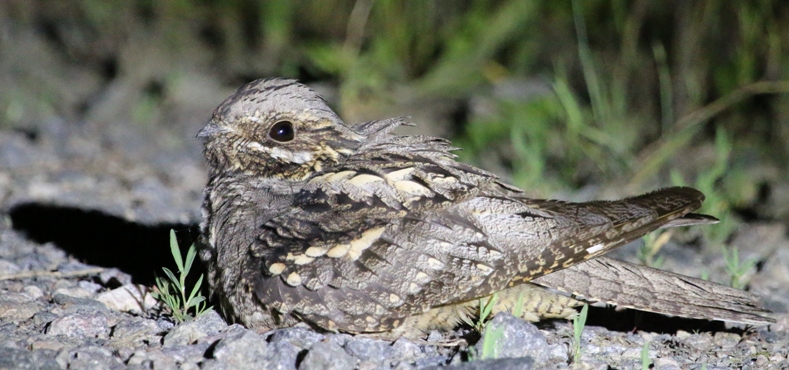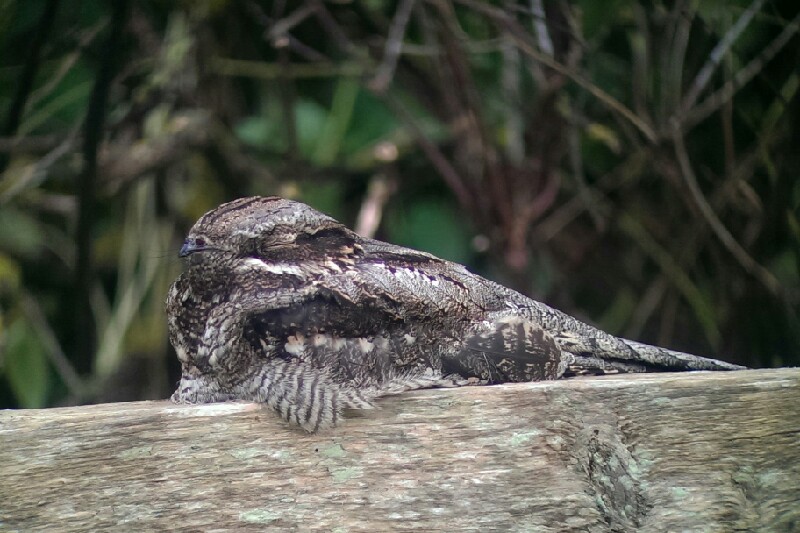Kentish Plover (Charadrius alexandrinus)
Nightjar (Caprimulgus europaeus)
Long-legged and compact plover with short rear-end and thin, black bill. Breast-band (or rather breast patches) usually incomplete and broken, and narrow. Leaves an overall pale impression compared to congeners. The white forehead in adults reaches all the way to the bill. Breeding male with rufous neck patch, distinct black facial markings and black breast-band. Female more diffusely coloured in brown, with slightly darker breast-band. Immature even duller. Tal shorter than Ringed Plover with substantially more white on edges. Legs darker than congeners (blackish when breeding), but may be greenish in immature birds. Can be identified by profile alone with some experience, by combination of long legs, short and compact body and flat forehead. Lifts legs well clear of ground when running, giving it's rapid gait a bicycling feel.
Sound:Contact calls more frequently heard than song, with two distinct calls. A short and soft ascending whistle resembling chiff-chaff is often heard from the ground, and a hard and rolling "prrrrt" if flushed (or just a short "tip"). Song a hard and rolling sequence resembling Dunlin song, but less nasal and more pulsating.
Song:
Distribution:
Xeno-canto: map
Ecology:Birdlife ecology
Links:
Observation.org Latest observations
Image search Flickr NB! May give other species
CCFalcon or cuckoo-like, nocturnal bird with long tail and slender, pointed wings. Unmistakable when seen in areas where no other species of nightjars occur, or when singing. Hard to distinguish from Red-necked Nightjar in the field, but smaller size, smaller head compared to body and shorter tail give indications. If plumage is seen clearly, note general tone (grey brown), dark front edge of arm, broader upper wing-bar and small white throat patch.
Sound:Song unique among birds, but quite similar to Mole cricket. A mechanical, continuous slur, like the sound of a distant motorbike. As opposed to the Mole Cricket, it often "shifts gear" by changing pitch to a note approximately a fourth below the drone. Flight call a peculiar "kew-eek", with a nasal and frog-like timbre.
Song:
Distribution:
Wikipedia: map (se also Xeno-canto below)
Ecology:Birdlife ecology
Links:
Observation.org Latest observations
Image search Flickr NB! May give other species
CC
 English
English Albanian
Albanian
 Armenian
Armenian
 Bulgarian
Bulgarian
 Catalan
Catalan
 Croatian
Croatian
 Czech
Czech
 Danish
Danish
 Dutch
Dutch
 Finnish
Finnish
 French
French
 Georgian
Georgian
 German
German
 Greek
Greek
 Hungarian
Hungarian
 Italian
Italian
 Latvian
Latvian
 Lithuanian
Lithuanian
 Macedonian
Macedonian
 Norwegian
Norwegian
 Polish
Polish
 Portuguese
Portuguese
 Romanian
Romanian
 Russian
Russian
 Sami : Lule sami
Sami : Lule sami
 Sami : North sami
Sami : North sami
 Sami : South sami
Sami : South sami
 Scientific names
Scientific names
 Serbian
Serbian
 Spanish
Spanish
 Swedish
Swedish
 Ukrainian
Ukrainian


